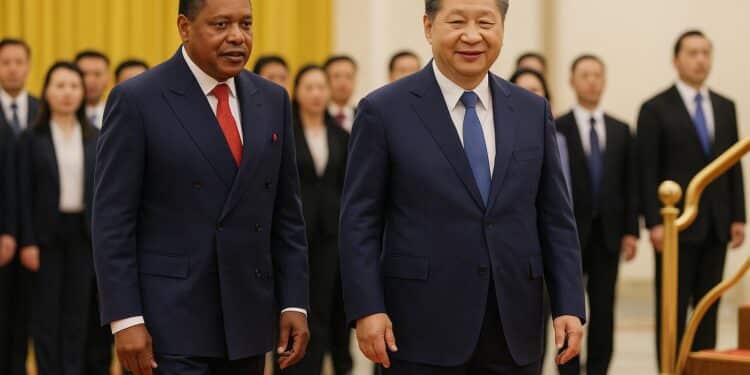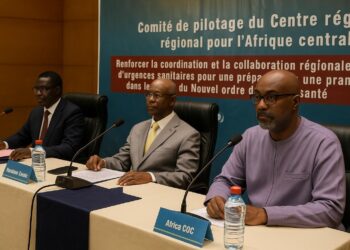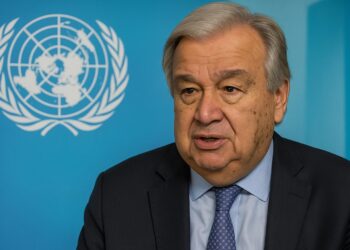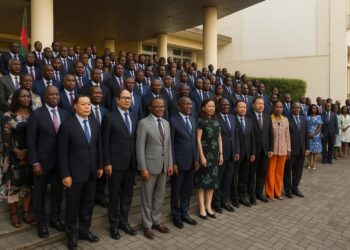China–Africa strategic alignment
Along the Congo River, construction cranes reflect a shifting world economy. The Republic of Congo and China, co-chairs of the Forum on China-Africa Cooperation, have opted for what Brazzaville calls a “development-shared partnership,” aligning young African demographics with Chinese industrial experience (Congo Ministry of Economy).
Unlike episodic commodity booms, the arrangement rests on long-term political understanding. Officials in Beijing highlight mutual respect and complementarity, insisting that both sides draft projects together rather than accept turnkey solutions. The stated goal is to build value chains that let African producers climb the earnings ladder (Xinhua).
Opportunities for Congolese exporters
The bilateral pact trims tariffs on selected timber, cocoa and refined petroleum derivatives, easing the path to China’s vast consumer market. Local chambers of commerce estimate potential export growth of 15 % annually once full schedules are implemented, a figure considered conservative by trade economists in Brazzaville.
Lower customs fees matter, yet predictability may matter more. Entrepreneurs who once wrestled with varying inspection rules now face unified protocols. Bankers in Pointe-Noire confirm that clearer documentation timelines already shorten shipment cycles and unlock working-capital lines priced below the regional average (interviews, July).
Green industry and digital leap
The agreement’s most striking clause centres on low-carbon manufacturing. Chinese firms have pledged technology transfer in solar panel assembly and battery recycling, sectors where Congo’s hydropower surplus offers a comparative edge. Pilot lines are scheduled for the Maloukou special economic zone by 2025, pending feasibility reviews.
Digital collaboration advances in parallel. Two private mobile operators are testing cross-border e-commerce platforms built on Chinese cloud architecture, while the Treasury studies digital payment interoperability. Congolese universities have signed memoranda for dual AI curricula, signalling an ambition to localise data analytics instead of simply importing turnkey software.
Trade diplomacy amid global headwinds
Tighter monetary policies in advanced economies and renewed protectionist rhetoric could have constrained Sino-African flows. Beijing’s decision at the World Trade Organization to waive certain special-and-differential privileges, however, underlines a commitment to a multilateral order where emerging economies negotiate as peers (WTO statement).
For Congo, the gesture translates into smoother market entry for its goods and reassurance that rules will not shift abruptly. Officials view the stance as a buffer against volatility, pointing out that diversified partners stabilise export receipts more effectively than bilateral aid envelopes ever could.
Implications for international investors
Private-equity scouts see three immediate openings: midstream timber processing, localized agro-industry, and logistics upgrades along the Pointe-Noire-Brazzaville corridor. Each vertical benefits directly from tariff relief and the technology package embedded in the deal. Risk-adjusted returns hinge on execution capacity rather than macro shocks, analysts argue.
Institutional lenders note that project financing may qualify for green-bond frameworks once carbon-intensity thresholds are met. The finance ministry is drafting an inaugural sustainable-bond prospectus, using the partnership as anchor pipeline. If certified, yields could tighten, setting a benchmark for Central African franc-denominated climate instruments.
Crucially, the cooperation agreement sidesteps sovereign-debt debates that sometimes cloud Chinese engagements elsewhere. Brazzaville retains procurement choice, while Beijing refrains from mandatory lending tied to a specific contractor pool. Observers say the clause responds to investor concerns over transparency without undermining the pace of delivery.
Diaspora professionals, often overlooked, now feature explicitly in workforce plans. Tax holidays on expatriate income and fast-track residence permits aim to entice engineers and financiers to return. Congolese authorities believe that skilled migration circulates technology faster than equipment alone, reinforcing the local content pillars of the accord.
For multinationals already present, the message is stability. Existing production-sharing contracts in hydrocarbons and mining remain unchanged, but ancillary services—digitised customs, electronic invoicing—should lower operational friction. Compliance teams note that clear arbitration procedures within the partnership reduce legal uncertainty when disagreements arise.
Forward momentum
While global headlines dwell on rival geopolitical blocs, Brazzaville and Beijing frame their cooperation as pragmatic economics. The emphasis on shared gains, from tariff cuts to green technology, seeks to anchor growth in mutually reinforcing supply chains rather than extractive cycles.
Implementation now becomes the benchmark. If pilot projects at Maloukou reach commercial scale and digital payments achieve cross-border functionality, the Congo-China model could offer a template for other African middle-income economies. For investors, tracking milestones rather than rhetoric will separate opportunity from optimism.












































